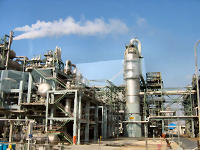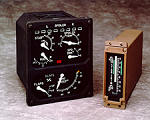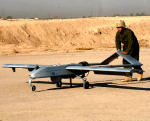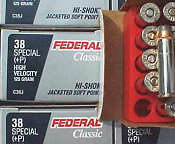 This recently unsealed criminal complaint against a Florida man shows that the FBI agents and the federal prosecutors haven’t a clue as to the correct reading of the definition of a “broker” in Part 129 of the International Traffic in Arms Regulations (the “ITAR”). In fact, it appears that the prosecutors and investigators have charged the defendant as an unlicensed broker merely because he had begun to negotiate for the export of a shipment of ammunition before getting the export license. If that’s a criminal offense, there are certainly lots of people who better get their affairs in order and contact a criminal defense attorney.
This recently unsealed criminal complaint against a Florida man shows that the FBI agents and the federal prosecutors haven’t a clue as to the correct reading of the definition of a “broker” in Part 129 of the International Traffic in Arms Regulations (the “ITAR”). In fact, it appears that the prosecutors and investigators have charged the defendant as an unlicensed broker merely because he had begun to negotiate for the export of a shipment of ammunition before getting the export license. If that’s a criminal offense, there are certainly lots of people who better get their affairs in order and contact a criminal defense attorney.
The defendant, Lance Brooks, had been awaiting sentencing after pleading guilty to the unauthorized export of defense services arising out of a trip he made to the UAE to train customers in the use of a grenade launcher. While Brooks was awaiting sentencing, the FBI obtained a warrant to search a DHL package to Brooks from the Firearms Coastal Security Branch in Jamaica. Inside the package was an End Use Certificate (DSP-83) from Jamaica’s Ministry of National Security pertaining to 270,000 rounds of jacketed soft point ammunition, most of it .38 caliber.
The FBI Joint Terrorism Task Force contacted the Jamaican government to obtain further details about the transaction. According to the Jamaican government, Brooks had bid in response to a government proposal to purchase the ammunition, had won that bid, had faxed an invoice for the ammunition to the government, provided banking information for payment for the ammunition, and requested and received an End User Certificate (DSP-83) from the Jamaican government for the ammunition. The FBI inquired with the Directorate of Defense Trade Controls (“DDTC”) to determine if Brooks had a license to export the ammunition. When it learned that Brooks had not yet applied for the license, it charged him with engaging in unlicensed brokering activities without first having registered as a broker with DDTC.
Significantly there is no evidence alleged in the complaint that Brooks had attempted to export the ammunition without a license or that he had no intention of applying for the license. Indeed, his request that the Jamaican Government execute and send to him the End User Certificate (DSP-83) — a document that had to be obtained before a license could be granted — suggested that Brooks had every intention of obtaining a license prior to export. Lacking any evidence of an attempted export or a conspiracy to export, it would appear that the FBI and prosecutors cooked up the brokering charge.
The definition of “broker” in section 129.2 of the ITAR doesn’t cover Brooks’s activities with respect to the contemplated sale of ammunition to the Jamaican government. The key part of that definition is that a broker is someone who acts “as an agent for others” in arranging for the sale of defense articles “in return for a fee.” The allegations of the criminal complaint do not provide any evidence that Brooks was acting for anyone other than himself in arranging this contract or that he was going to receive any fee from that other person. Instead, it appears that Brooks was engaged in a transaction on his own behalf and expected a sales profit on the deal rather than a third-party fee or commission.
If what Brooks did — namely, negotiating a contract for a defense article prior to receiving an export license — is brokering, than almost every exporter will be subject to criminal penalties if they haven’t registered as a broker. Worse, those exporters may need to obtain brokering licenses from DDTC before even talking to potential customers with respect to transactions that fall within the brokerage licensing requirements of section 129.6.
Exporters that had such a poor understanding of the ITAR as these federal enforcement officials would likely be fined or worse when their misunderstandings led to rule violations; no such negative consequences, however, await these enforcement officials who appear not to have even a rudimentary understanding of Part 129 or the definition of a “broker” under that Part. One can only hope that Brooks’s public defender reads Part 129 with slightly more care and gets these charges dismissed.

 Posted by
Posted by  Category:
Category: 

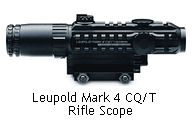 A magistrate hearing pretrial motions in the criminal export case against Doli Syarief Pulungan wondered in a recently issued
A magistrate hearing pretrial motions in the criminal export case against Doli Syarief Pulungan wondered in a recently issued 